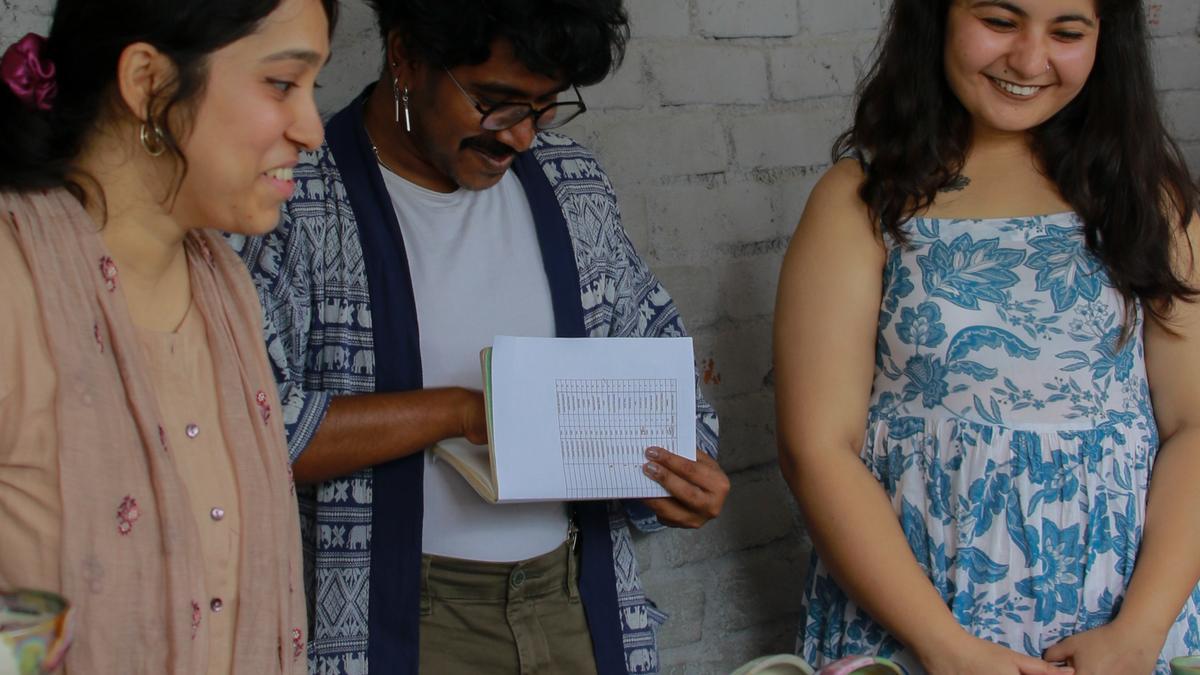
In the recent Telugu cinematic offering, “Om Bheem Bush,” the audience is taken on a rollicking journey with a playful and boisterous trio, led by Sree Vishnu, Priyadarshi Pulikonda, and Rahul Ramakrishna. Director Sree Harsha Konuganti bends genres with a masterstroke, leaving viewers in stunned amusement as the film progresses towards its surprising climax.
At first glance, it may seem that the film caters to an easy-going laugh riot, equipped with abundant references to contemporary pop culture. Beginning with a rather tepid bout of humor, the storyline evolves into a delightfully outrageous and spine-chilling escapade. Yet, it’s the unexpected pivot to an LGBTQ-affirming narrative that really sets this film apart, meriting applause—although the passage to this revelation meanders with some excess baggage.
The apparent familiarity that stems from the trio’s previous collaboration in Vivek Athreya’s “Brochevarevarura” is nostalgically repurposed in “Om Bheem Bush.” While they once played beleaguered students, they now portray daftly comical PhD researchers—allegedly. Nonetheless, this time around, the antics are far zanier.
The premise is simple: Krish (Sree Vishnu), Madhav (Rahul), and Vinay (Priyadarshi) cunningly charm their way into the graces of Professor Ranjith Vinukonda (Srikanth Iyengar) with a fabricated desire to delve into geophysics and metaphysics. Yet, chaos ensues as their true motives—which lean towards the appeasements of campus living rather than scholarly pursuits—unravel. Admittedly, these segments drag and induce a groan or two.
Within the disclaimer around the non-endorsement of treasure hunts and black magic, there lies a freeing invitation into the realm of ludicrous comedy. One doesn’t dare question the logic of the protagonists’ peculiar get-ups or how their daily sustenance is so effortlessly procured in a deserted manor. The Bang Bros, as they come to be known, succeed in duping the villagers with their harebrained schemes, though their endeavors sometimes flirt with the edges of slapstick humor.
The true momentum of “Om Bheem Bush” picks up with the introduction of a spectral presence named Sampangi from Kerala. The character quirks of the protagonists—a braggart with a talent for conversing with the departed, a Casanova with no shortage of admirers—serve to drive the plot. Vinay proves to be the voice of sanity amidst Krish and Madhav’s frolics. The commendable wordplay (where “sadist” is used as a term for a sorrowful person) and playful title distortions (cue “Crazy must be the Gods!”) contribute to the entertaining chaos that unfolds within their haunted abode.
Pop culture nods come to the fore, with respectful homages to “Salaar,” “Eega,” and “Magadheera,” and a tacit acknowledgement of the Malayalam hit “Manichitrathazhu.” Yet, it’s the clever use of these cultural touchstones that paves the way for the film’s more profound themes, touching on the social and legal recognition of same-sex marriage with compassion and care. The stark contrast between the raucous comedy and the pivotal narrative turn prompts introspection among the audience—a testament to the film’s nuanced and empathetic approach toward gender identity.
Sree Vishnu, Priyadarshi, and Rahul bring to the table their well-established comedic acumen and emotional depth, enriching the film’s progression. While the supporting characters may not make as much of an impact, the leads carry the narrative effectively.
The film concludes on an encouraging note; despite its earlier comedic excesses, the core message of “Om Bheem Bush” and the vibrancy brought in by the actors create an overwhelmingly positive aftertaste. A tighter script in the initial stages might have propelled this film into the echelons of an unequivocal triumph. Nevertheless, “Om Bheem Bush” cements its place as a quirky, spooky, and unexpectedly poignant piece of Telugu cinema.










